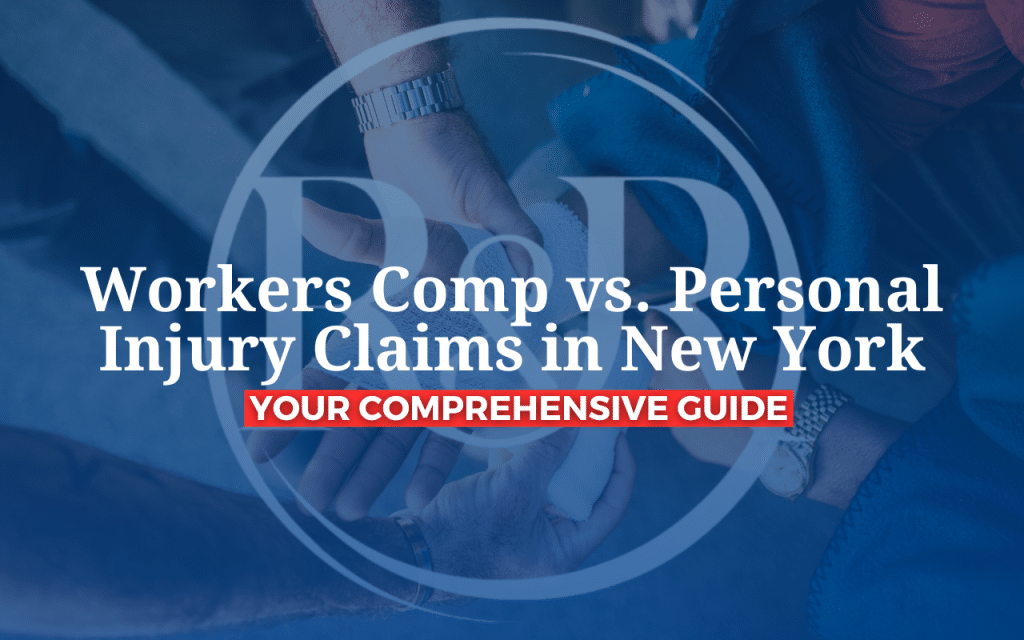Experiencing a serious personal injury can be both shocking and distressing. At some stage, you or the defendant—perhaps both—may need to participate in a deposition, ideally after settlement negotiations have begun.
In New York, your claim will be subject to New York state personal injury laws, and a deposition can only take place once you have filed a personal injury lawsuit. While there is no definitive timeline for receiving a settlement following a deposition, several factors can help you make an informed estimate.
What Is a Deposition?
A deposition shares similarities with cross-examination in court, but it occurs outside the courtroom, typically in an attorney’s conference room. While a judge isn’t present, the proceedings are recorded and can serve as admissible evidence in a trial.
During a deposition, you are under oath, which means providing false information can lead to criminal charges. Furthermore, the opposing party may highlight any discrepancies between your deposition statements and any sworn testimony you provide during a trial, should it occur.
How a Deposition Can Influence Settlement Negotiations
Depositions are a crucial element of the pretrial discovery process, which also includes written questions (interrogatories), requests for document production, and admissions of minor or irrelevant facts.
If your deposition, along with the other components of discovery, goes favorably, you may gather enough evidence to secure a strong bargaining position. In such a case, you could potentially demand and receive a substantial personal injury settlement without further negotiations. Conversely, a poorly conducted deposition may jeopardize your claim and force you to abandon it altogether. Therefore, it is essential to have a skilled personal injury attorney representing you during a deposition.
Factors That Affect Settlement Timelines
While there is no definitive timeline for receiving a settlement following a deposition, several factors influence the duration of negotiations and the final outcome. These may include:
- The complexity of your case: Complicated cases involving multiple parties or legal issues may take longer to resolve.
- The severity of your injuries: Serious and life-altering injuries often lead to higher settlements but can also prolong negotiations as both sides evaluate and argue over the extent of damages.
- The strength of evidence: A strong deposition with clear evidence and compelling testimony can expedite settlement negotiations.
- Willingness to negotiate: Sometimes, parties may be stubborn or unwilling to compromise, which can result in prolonged negotiations and a delayed settlement.
- Insurance company tactics: Some insurance companies may use delay tactics to pressure you into accepting a lower settlement. This is why it is crucial to have an experienced personal injury attorney on your side who can advocate for your rights and protect you from such tactics.
Receiving Your Settlement Check
There may be a delay between when the parties agree to a settlement and when the funds appear in your bank account. Several steps are involved in this process:
- First, you will need to draft and sign a settlement agreement. This document will require the other party to make the payment and will also obligate you to drop your lawsuit and relinquish any future claims related to the same incident.
- Next, the defendant must issue the check within a reasonable timeframe. If a large insurance company is involved, expect some bureaucratic delays. Your lawyer will receive the check on your behalf.
- Your lawyer will then deduct any applicable expenses, which may include their legal fees, any out-of-pocket case costs, and any medical liens attached to your settlement. After these deductions, they will send you the remaining amount.
If the opposing party hesitates to pay even after signing the settlement agreement, you have the option to pursue a contract claim against them, as the settlement agreement serves as your contract.
Hire a Personal Injury Lawyer to Prepare for Your Deposition
Preparing for a deposition can be a daunting task. Attempting to navigate this process without adequate preparation can have serious consequences. Not only could you jeopardize your claim, but in the worst-case scenario, you might face charges of perjury or contempt of court. It’s crucial to hire a lawyer well in advance of your deposition, allowing ample time for thorough rehearsal.
Most personal injury attorneys work on a contingency fee basis, meaning a percentage of your recovery—typically between 30% and 40%—will be allocated to legal fees. The advantage of this arrangement is that you won’t owe any legal fees unless you secure a win.
During the deposition, you will be asked to provide a sworn statement under oath. This is a critical stage in the legal process as it allows both parties to gather information and evidence before trial. Your attorney will prepare you for potential questions and help you understand what is expected of you during the deposition.
Hiring a personal injury lawyer can also significantly increase your chances of receiving fair compensation. With their expertise and experience, they know how to negotiate with insurance companies and defense lawyers to ensure that you receive the best possible outcome.
In addition, a personal injury lawyer can handle all legal aspects of your case while you focus on recovering from your injuries. They will communicate with all involved parties on your behalf and keep you updated on the progress of your case. This can alleviate a significant amount of stress and allow you to focus on healing.
Moreover, a personal injury lawyer will have access to resources and tools that can strengthen your case. They may bring in expert witnesses or gather additional evidence to support your claim. This level of expertise and attention to detail is crucial in building a strong case and maximizing your chances of success.
Contact Our Trusted Personal Injury Lawyers Today
For expert legal assistance, contact the seasoned personal injury attorneys at Rosenberg & Rodriguez in New York City. Schedule your complimentary consultation at the nearest location. Our committed attorneys will navigate you through the legal process and tirelessly advocate for the compensation you deserve. We have conveniently located offices throughout New York City, including Brooklyn, the Bronx, Queens, Long Island, and Manhattan.




